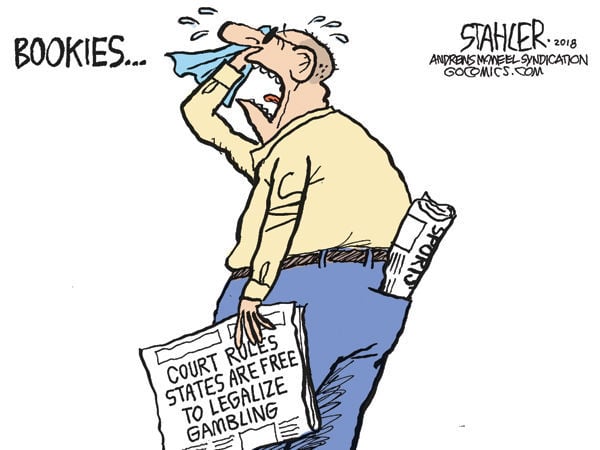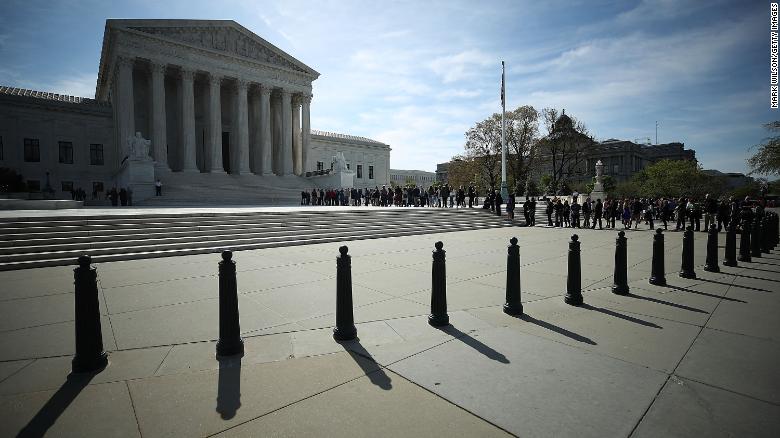States That Legalized Gambling
If you reside in the United States and are a sports bettor, there are only three states where gambling online is legal. This includes the state of Nevada, state of New Jersey and the state of Delaware. You must be a resident of the state and will be required to provide verification through state identification before being permitted to use any.
- State that wishes can now offer legalized sports betting. Here is an update on where all 50 states (and Washington, D.C.) stand.
- The excerpts generally include state constitutional provisions specifically about gambling, “aiding and abetting” provisions of the state’s criminal laws, the basic criminal gambling laws, and some references to the legalized gaming laws in a few of the states.
- The Supreme Court cleared the way on Monday for states to legalize sports betting, striking down a 1992 federal law that had prohibited most states from authorizing sports betting.
Sports betting in the United States has changed dramatically since May of 2018 when PASPA was repealed. In fact, the changes are taking place so quickly, it's actually a bit challenging to keep up. This is not a bad thing though - it means that the sports wagering industry is expanding to fill the void that US bettors have felt for the last several decades, and state lawmakers are on board for the most part with pioneering the launch of the domestic US sports betting industry.
Following PASPA's nullification, state-regulated sports betting has come onto the scene to provide a second avenue for betting along with the handful of trusted offshore sportsbooks that have legally and reliably provided their betting services to American sports fans for decades. To assist in helping everyone stay in the know regarding which states allow or prohibit these different forms of sportsbook gambling, we've broken the information down in a few different ways.
Where Is Sports Betting Considered Legal In The United States?
Before May 2018, only one state had full-service state-regulated sports betting options, that state being Nevada. At this moment in time, the number of states offering legal domestic sports betting is 19. In addition, US players are permitted to access offshore sports betting sites in most states except in Connecticut and Washington, where lawmakers have established state laws outlawing access to all forms of online gambling. Residents in every other state can legally access offshore sportsbooks without violating any type of state or federal laws.
List Of States That Have Already Legalized State Regulated Sports Betting
What states offer legal sports betting locally? Currently, more than 20 US states have legalized state-regulated sports betting options, though you can reduce that number by one if you consider the tribal loophole used by New Mexico Indian nations to not qualify as specific state approval.
A significant number of states have passed legislation to authorize sports gambling in their state but have yet to launch any sportsbooks while additional states have legislation pending.
Here is a breakdown of the states that have already passed legislation allowing domestic sports betting entertainment as well as states that have pending active legislation in the works. States with ** indicate that they have legalized state-regulated sports betting but have not yet launched any brick and mortar or online betting options.
- Arkansas
- Colorado
- Delaware
- Illinois
- Indiana
- Iowa
- Michigan
- Mississippi
- Montana
- Nevada
- New Hampshire
- New Jersey
- New Mexico
- New York
- North Carolina**
- Oregon
- Pennsylvania
- Rhode Island
- Tennessee
- Virginia**
- West Virginia
- Washington**
- Washington D.C.
List Of U.S. States That Don't Criminalize Offshore Betting
Even if you don't live in one of the above states which have passed legislation to legalize sports betting, there are still plenty of options to bet on sports while remaining within the confines of the U.S. law. The most important thing to understand on the legal side of things is that there are only 2 states which specifically make gambling via an offshore site illegal. These include Washington and Connecticut. So you won't be breaking any laws if you reside in any other state and choose to bet with an offshore sportsbook.
| U.S. States | |||
|---|---|---|---|
| Alabama | Alaska | Arizona | Arkansas |
| California | Colorado | Connecticut | Delaware |
| Florida | Georgia | Hawaii | Idaho |
| Illinois | Indiana | Iowa | Kansas |
| Kentucky | Louisiana | Maine | Maryland |
| Massachusetts | Michigan | Minnesota | Mississippi |
| Missouri | Montana | Nebraska | Nevada |
| New Hampshire | New Jersey | New Mexico | New York |
| North Carolina | North Dakota | Ohio | Oklahoma |
| Oregon | Pennsylvania | Rhode Island | South Carolina |
| South Dakota | Tennessee | Texas | Utah |
| Vermont | Virginia | Washington | Washington D.C. |
| West Virginia | Wisconsin | Wyoming | |
States Where Online Sports Betting Is Considered Illegal
A few states have taken an extra measure to strengthen their enforcement of anti-gambling laws to keep their residents from engaging in any form of gambling on the Internet, including online sports betting:
- Washington
- Connecticut
States That Legalized Gambling 2020
These two states are the only ones that have taken this approach as of early 2020. They each have specific state laws that outlaw all forms of gambling on the Internet, regardless of the source. Their prohibition of online sports wagering does not mean that they won't legalize state-regulated brick-and-mortar sportsbooks, as Connecticut has some betting legislation on the table right now and Washington just passed a sports betting bill of its own.
There are also a few states that have enacted laws specifically to prohibit state-regulated sports wagering, including:
- Utah
- Vermont
- Alaska
- Hawaii
We've seen that this can change as well, as Hawaii already has a pending sports gambling bill in its legislature.

Understanding States’ Rights
The United States Department of Justice issued a Formal Opinion in 2011 clarifying that the Wire Act only pertained to US-based online sports gambling businesses. This freed up states to issue legislation that would legalize online casinos and poker.
However, the application of this law changed in 2018 with the repeal of PASPA and again in 2019 with another clarification of the law's reach post-PASPA. Now the Act simply prohibits any interstate gambling transmissions for all state-regulated gambling, meaning that state gambling businesses are not permitted to accept wagers across state lines. This interpretation is being challenged in court, so the application of the Wire Act could change yet again.

Until its repeal in May of 2018, PASPA was a federal ban that superseded states’ rights. There was an argument against the ban stating that it violated states’ constitutional rights. PASPA prohibited states from authorizing or licensing sports betting enterprises themselves. After being sued by the major sports leagues in the US, NJ decided to do something about PASPA.
New Jersey was victorious in their historic Supreme Court case where they are argued that PASPA violates their rights as they tried to authorize sports betting in 2014. SCOTUS ruled that PASPA was indeed unconstitutional and rendered the law null and void and has therefore placed the authority to regulate sports wagering into the hands of the individual states.
Make Your Voice Heard
You can help with the ongoing US sports betting legal disputes by contacting your state representatives and encouraging them to vote on matters you support. Contact your state representatives and tell them to support sports betting legislation. If you visit our state bill tracker page - you will see a map with all the states. If you click on that map you will see a list of all pending bills for any given state. If a state is not 'clickable', you will know there are no sports betting bills pending for that state.
Understanding The Legal Gambling Age Of Each State
One of the most stringent protocols for any gambling sector is age verification. States have gambling age requirements to prevent minors from gaining access to both brick-and-mortar and online gambling platforms. Most states have a minimum gambling age somewhere between 18 and 21. However, most state-regulated sports betting platforms that we've seen launched require participants to be at least 21 years old, but there are a few exceptions. Be sure to check with your state’s gambling laws before participating in gambling to ensure you are within your legal limits.
What The Future Holds For Legal Online Sports Betting In America
This depends on whether the 2019 DOJ opinion on the Wire Act will be challenged in court (though it has received a temporary injunction on its new 'interpretation'). This new opinion flipped the domestic market on its head as it placed many restrictions on operations, forcing providers to be 100% intrastate-supported and compliant by mid-2019. However, New Hampshire and other states are attempting to challenge this opinion in court, and so far things are looking good.

Sports Gambling - By The Numbers
Be the legal situation as it may, sports betting still happens. American bettors are flocking to regulated offshore sportsbooks or illegal online and offline bookies to place their wagers. Sports gambling is a billion-dollar industry.
To put things in perspective, check out this information provided by the American Gaming Association of sports betting statistics from Super Bowl LIV (2020).
- 26 million—Number of American adults to bet on SB54
- 5 million—Bets placed online/offshore
- $6.8 billion—Total Super Bowl betting handle
- $154.7 million—Legal bets placed in Nevada
- $6.65 billion—Gray-market bets placed everywhere else
- 97.7%—Percentage of all bets placed through non-US-licensed means
- 25%—Increase in total Super Bowl bets from the previous year
The AGA is also estimating that a total of over $40 billion will be wagered on MLB games during the next season. Imagine if this type of revenue was being regulated. Since the market already exists, why not put regulations on it to make it work towards our mutual benefit?
A poll conducted before the repeal of PASPA by the Morning Consult asked NFL fans their opinions on sports betting legislation. Nearly three times as many NFL fans believed the federal government should lift the ban on sports betting. The majority also believed that individual states should have the power to decide if they want sports betting, not the federal government. Americans want to bet on sports, and they've made it clear.
Voice Your Opinion
American Casino Guide Book has the most comprehensive list of U.S. casinos by state available on the internet. Use this to find the most detailed and up to date information on every US casino hotel, riverboat casino and tribal casino.
We provide users with a detailed list of all casinos in each US state and we give a detailed explanation on what kind of casino gambling is legal in each state.
Different types of casinos in U.S.
There are several different types of casinos found across the United States. Depending on your location in the country there could be any of the following: tribal or native american casinos (also called indian casinos), pari-mutuel casinos, traditional casinos, casino boats and in some smaller markets, riverboat casinos.
Just choose the state you want from the below list of U.S. casinos by state. This will bring up detailed information on what forms of casino gambling are available in that state, including slot machine payback statistics for all U.S. casinos . There will also be a list of every casino in that particular state.
Each casino listing will give details about that particular casino, including: hours of operation, games offered, hotel rates, buffet prices, minimum gambling age, photos, maps, directions and more! Also, you can read and write reviews for all of these US casinos.
What States have casinos?
Whether it be a native american casino, pari-mutuel casino, land-based casino, riverboat casino or a casino boat, there are 44 states that offer some form of casino gambling.
Click here to see a list of U.S. Casinos by city
Click here to see Maps of Casino Locations in Every U.S. State

Indian Casinos

These casinos, also known as Tribal casinos, are usually located on federally recognized Indian reservations. They range in size from small truck stops and convenience stores with a handful of machines like many located in Oklahoma or Wisconsin, up to some of the largest casinos in the world such as Foxwoods Casino in Connecticut.
Also depending on the agreement reached with the state where the indian casinos are located, they can offer either Class II gaming or Class III gaming. Class III (Class 3) gaming is what most people would describe as “normal” casino gaming. This is kind of casino gambling you would find at a majority of casinos in the country like Las Vegas where it is the player against “the house” such as blackjack, craps, roulette, or any other table game, as well as slot machines.
Class II (Class 2) gaming on the other hand is slightly different. These are games where it is players competing against other players such as poker or bingo. Over the years, casinos have found ways around this to offer other casino games that play similarly to Class III games but still adhere to Class II rules. A great example of this are Class II slot machines that closely resemble a normal, Class III machine but you will notice a small bingo card in the corner of the screen. So, in essence, you are actually playing a speeded-up game of virtual bingo against other players in the casino. The reels still spin and you will see winning combinations if you win. However, the reels are “for entertainment purposes only” and whether or not you win on each spin is based entirely on the bingo card located in the corner.
Another example of Class II games would be player-banked table games where you are competing against other players rather than against the casino itself. These look identical to traditional table games and the only difference is that players have to pay an ante of around $0.50-$1 per hand. This is because in most cases there is someone who supplies the money to be the “bank” and the only money the casino receives is the ante made by each player.
Pari-Mutuel Casinos
Some states such as Arkansas or Delaware only allow casinos in pari-mutuel facilities. These are locations with legalized wagering on several different kinds of horse or dog racing or, in Florida, jai-alai games. Since a vast majority of pari-mutuel facilities in the United States are racetracks, these types of casinos are often also known as “racinos,” a combination of the words racetrack and casino.
Other than having legal betting on horse racing, dog racing or jai-alai on property, these casinos are almost identical to other land-based casinos like those in Las Vegas or Atlantic City. However, depending on the laws of the states where they are located, some may not offer live table games, or may only have slot machines.
States That Have Legalized Casino Gambling
A somewhat new development at pari-mutuel facilities in some states like Kentucky where traditional casino gambling is not legal is something called “historical racing machines.” These are considered Class II machines similar to the bingo-based machines at many Indian casinos but instead of being based off of a bingo card, the results of these games are based on racing results from previous horse races.
Land-Based Casinos
States That Legalized Online Gambling
These are the regular casinos that people think of when they think of a casino. This would be like the casinos in Las Vegas or Atlantic City. Casino gambling was legalized in Nevada in 1931 and it was the only state to offer that type of gambling until 1977 when New Jersey legalized casinos for its seaside resort town of Atlantic City. It is these land-based, stand-alone, casinos that were the original forms until riverboat and Indian casinos came along in the 1990’s.
Riverboat Casinos
Riverboat casinos are exactly what they sound like, they are casinos located inside boats that are in rivers. They are located in many states through out the South and Midwest such as Illinois, Indiana, Iowa, Missouri and Mississippi. However, they have evolved over the years as the laws regulating them have been relaxed. Originally, they were required to leave the dock and go on a cruise for several hours then come back and dock and they would do that several times throughout the day. Originally, some states even required the casinos to enact loss limits during these cruises.
States That Legalized Sports Gambling
Eventually the loss limits were lifted, as were the requirements for them to cruise, so they began operating while docked on the river. Some states later allowed the casinos to be built on barges that float in man-made lagoons that are fed from the rivers. That is where most of the states are now, but some such as Mississippi have also allowed their “riverboat” casinos to be built on land, but they are still required to be built within a certain distance of the water